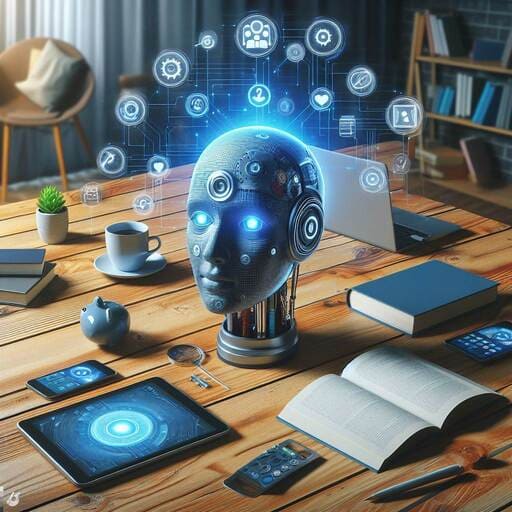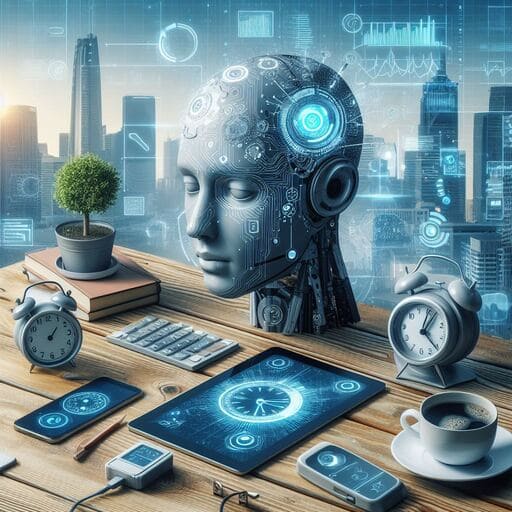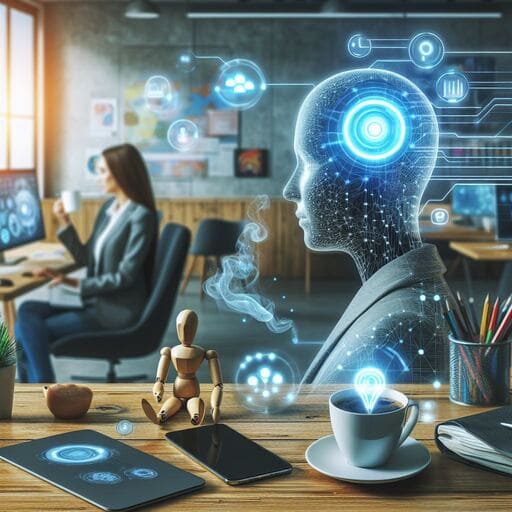Artificial intelligence (AI) has rapidly become an integral part of our daily lives, transforming the way we live and work. This groundbreaking technology has the ability to perform tasks that typically require human intelligence, such as problem-solving, decision-making, and natural language processing. In this article, we will explore the various applications of artificial intelligence and how it impacts our daily lives.
Artificial intelligence has seamlessly integrated into our daily routines, making our lives more convenient and efficient. Let’s delve into some of the key areas where AI has made a significant impact:
1. Personal Assistants (AI)
One of the most prevalent applications of artificial intelligence is the development of personal assistants. Companies like Apple, Google, and Amazon have introduced AI-powered virtual assistants, such as Siri, Google Assistant, and Alexa, respectively. These assistants can carry out tasks, answer questions, set reminders, and even control smart home devices through voice commands. The integration of AI in personal assistants has revolutionized the way we interact with our devices and has made our lives more hands-free and streamlined.
2. Healthcare
Artificial intelligence plays a vital role in the healthcare industry, enhancing patient care and improving medical outcomes. AI-powered algorithms can analyze large amounts of medical data to assist in early disease detection, personalized treatment plans, and medical image analysis. Additionally, AI is being utilized in robotic surgeries, where it aids surgeons in performing complex procedures with precision and accuracy. With AI-enabled healthcare systems, patient diagnoses and treatment options can be optimized, leading to better overall healthcare outcomes.
3. Transportation
Artificial intelligence has the potential to transform transportation systems by making them safer, more efficient, and environmentally friendly. AI algorithms are used in autonomous vehicles to interpret and respond to their environment, ensuring safe navigation and reducing the risk of accidents. Furthermore, AI can analyze traffic patterns and optimize routes, reducing congestion and minimizing travel time. The integration of AI in transportation has the potential to revolutionize the way we commute, making it more sustainable and convenient.
4. Customer Service (AI)

AI has significantly improved customer service experiences through the use of chatbots and virtual assistants. These AI-powered systems can handle customer inquiries, provide technical support, and even process transactions. By utilizing natural language processing and machine learning, chatbots can understand customer queries and provide accurate and timely responses. This not only enhances customer satisfaction but also allows businesses to streamline their support processes and reduce costs.
5. Education

The field of education has also embraced artificial intelligence to enhance learning experiences and personalize education. AI-powered software can adapt to each student’s individual needs and provide personalized learning materials and feedback. Intelligent tutoring systems can analyze a student’s strengths and weaknesses, tailoring lessons to their specific learning style. Additionally, AI can automate administrative tasks, freeing up educators’ time to focus on instruction and student engagement. AI integration in education has the potential to revolutionize traditional teaching methods and create more inclusive and effective learning environments.
Conclusion
Artificial intelligence has unquestionably made a tremendous impact on our daily lives. Its applications span various industries, from personal assistants to healthcare, transportation, customer service, and education. The integration of AI has made our lives more convenient, efficient, and streamlined. However, as AI continues to advance, it is crucial to ensure ethical and responsible development to mitigate any potential risks. As we move forward, the impact of AI on daily life is only expected to grow, shaping a future that is more connected and intelligent.
